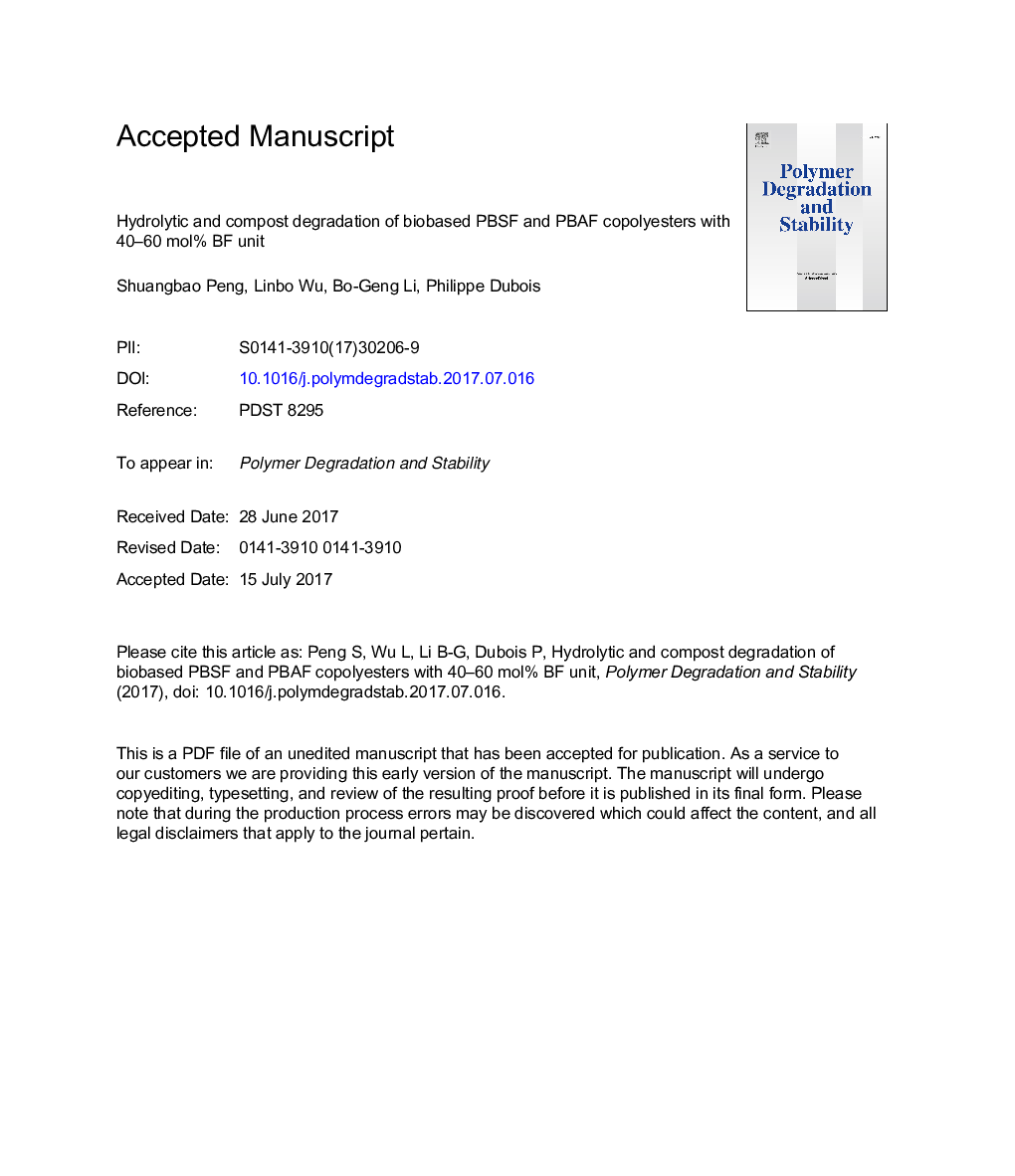| Article ID | Journal | Published Year | Pages | File Type |
|---|---|---|---|---|
| 7824243 | Polymer Degradation and Stability | 2017 | 15 Pages |
Abstract
To further assess the biodegradability of biobased copolyesters poly(butylene adipate-co-butylene furandicarboxylate)s (PBAFs) and poly(butylene succinate-co-butylene furandicarboxylate)s (PBSFs), compost as well as hydrolytic degradation of PBAFs and PBSFs with 40-60Â mol% butylene furandicarboxylate (BF) unit and high intrinsic viscosity (1.1-1.8Â dL/g) were investigated. The hydrolytic degradation was accelerated under acidic and alkaline in comparison to neutral condition. Faster weight loss was observed under alkaline condition but lower intrinsic viscosity was observed under acidic condition due to the distinct water solubility and diffusibility of the degradation products at various pH values. All the copolyesters reached 90% or higher biodegradation in less than 110 days at standard composting conditions. Copolyesters with higher BF content showed slower biodegradation, and PBAFs degraded faster in compost than PBSFs with the same composition. Very interestingly, these copolyesters showed easier biodegradation in compost even at higher aromatic content when compared with their terephthalic acid (TPA)-counterparts.
Related Topics
Physical Sciences and Engineering
Chemistry
Organic Chemistry
Authors
Shuangbao Peng, Linbo Wu, Bo-Geng Li, Philippe Dubois,
